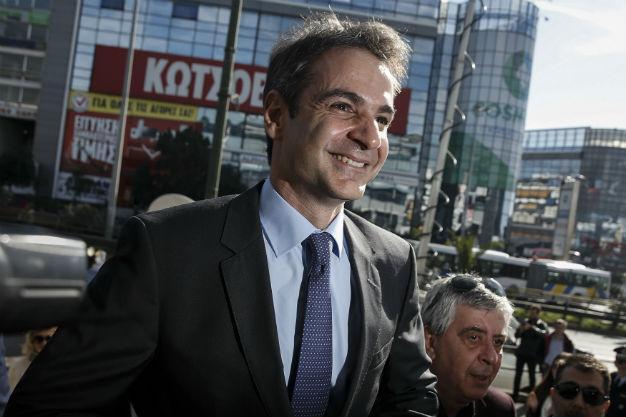Greek opposition ahead of Syriza for first time in a year
ATHENS – Agence France-Presse

ewly elected leader of Greece's conservative New Democracy party Kyriakos Mitsotakis arrives at the party's headquarters, a day after winning the party elections, in Athens, Greece January 11, 2016. REUTERS photo
Greece’s conservative opposition New Democracy party is more popular than the ruling left-wing Syriza for the first time in at least a year, two surveys show.A poll published Jan. 17 in the Proto Thema weekly placed ND on 21.3 percent against Syriza’s 18 percent, while a survey Saturday for the Parapolitika newspaper showed the conservatives with 23.6 percent against 19.9 percent.
The polls come a week after New Democracy elected no-nonsense reformer Kyriakos Mitsotakis, son of a former prime minister, as its new leader, in a move that analysts say has given the party a new lease of life.
ND were booted from power in January 2015 as Syriza stormed to victory, riding a wave of anti-austerity anger against Greece’s international creditors.
The conservative party suffered a serious hit to its support base over the year, with Syriza winning fresh elections in September, led by charismatic Prime Minister Alexis Tsipras.
But observers say voters are taking renewed interest in New Democracy thanks to the arrival of Mitsotakis, who champions “common sense against populism” and has pledged to shift the party’s policies towards the center.
Disenchantment with Syriza - which proceeded to sign Greece up for another tough international bailout deal, despite having promised to stand up to Brussels’ demands for steep austerity cuts - is another factor.
“ND is in the process of opening up towards the centre,” Niki Kerameus, spokeswoman for the party’s parliamentary group, told the Eleftheros Typos newspaper.
“Mr Mistotakis is changing the political spectrum, and can attract voters from other parties.”
The surveys, however, highlight widespread voter fatigue in a country that has faced repeated elections since its debt crisis began in 2010.
In both polls, some 30 percent of voters refused to give a preferred party, or said they would abstain in new elections.
















